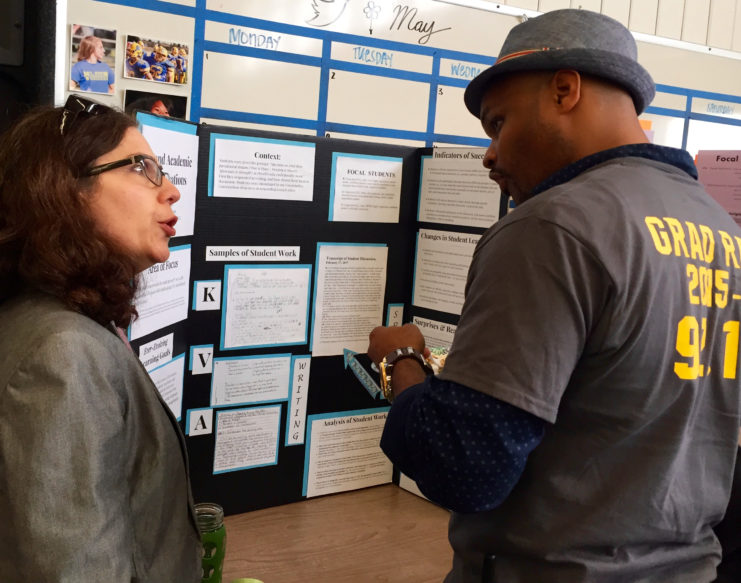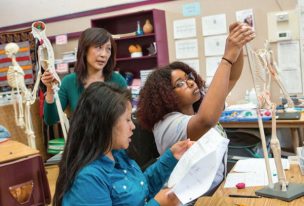
Adult Social and Emotional Learning: The Critical Missing Piece
Earlier this month Mills Teacher Scholars presented at the Collaborative for Academic, Social, and Emotional Learning (CASEL) convening to district leaders from around the nation on adult social emotional learning (SEL) as a foundational component to integrating SEL and academic learning. Our OUSD teacher leaders Ruanna Owens and Malia Tayabas-Kim modeled a Mills Teacher Scholars learning conversation, which used video data to anchor their discussion about whether second-grade students actually understood the significance of using text evidence to support their ideas.
As presenters we asked our audience not to get lured into the interesting content of the teachers’ conversation, but rather to step back and consider both the features of their discussion and what conditions were required for this kind of honest and supportive interaction between teachers to occur. This led many of the district leaders to realize that while they had invested in SEL curriculum for students, they had not yet had the opportunity to reflect on how to support building the SEL capacities of their teachers and leaders.
At Mills Teacher Scholars we recognize that structure is an important part of effective teacher collaboration. Professional learning communities, common planning time, instructional leadership teams, and consultancy protocols are all structures designed to support teamwork and adult learning. However, we also know that structures by themselves are not enough. A tool on its own does not lead to learning. A protocol by itself is not magic. Rather, if we want teachers to use meaningful data to figure out what’s happening for their students – especially those most vulnerable and marginalized often by the system itself– we have to attend to the conditions that must be in place for effective adult learning to occur.
Through our partnership with Oakland Unified we have grown in our understanding of how deep inquiry work builds the competency of adults to learn with and from each other. We continue to work inside the tensions between process and product, between a sharp focus and the integration of ideas, between small, short-term gains and the deeper, longer view. We are grateful to be partnered with local teachers, teacher leaders, and school and district leaders who have taken on the deep work of creating a learning culture.


